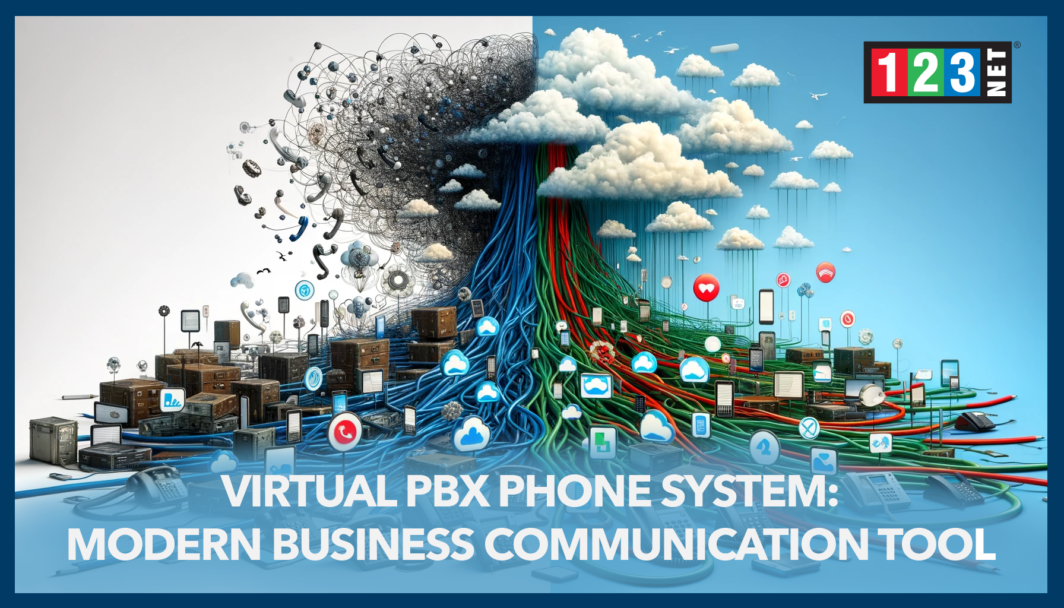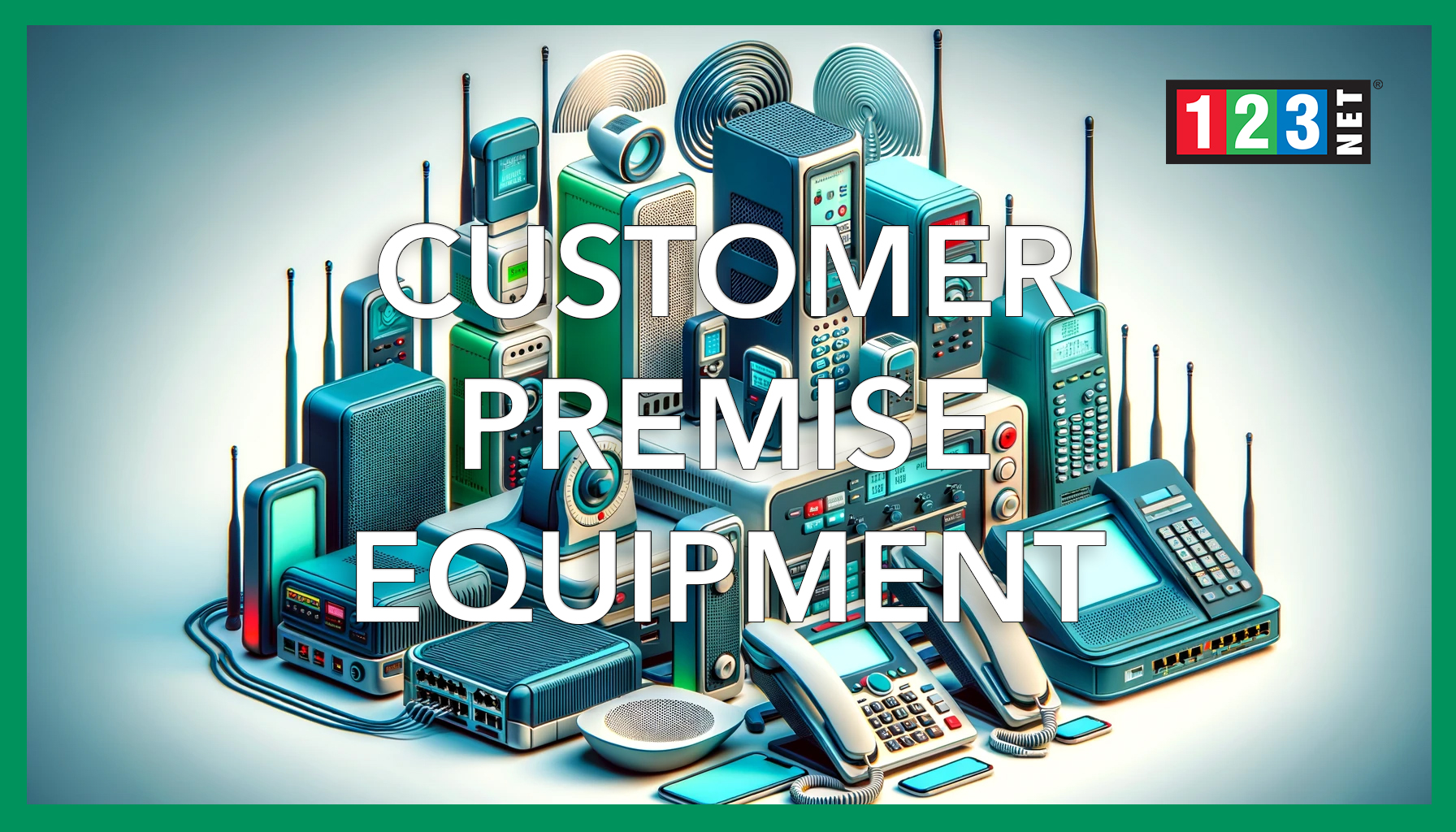
Introduction
In the digital era, businesses are increasingly transitioning from traditional phone systems to cloud-hosted Private Branch Exchange (PBX) systems, a critical evolution in business communications. Virtual PBX systems are crucial for supporting seamless remote work operations as more organizations embrace telecommuting. These systems provide essential modern communication tools that enhance flexibility and connectivity, vital for today’s distributed workforces. This article delves into virtual PBX systems, highlighting their benefits, leading providers, and vital considerations for their integration and optimization across various business settings. By adopting these advanced communication solutions, businesses can maintain robust connectivity and adapt to the dynamic demands of the modern workplace.
Understanding Virtual PBX Systems
A virtual PBX system fundamentally changes the traditional business communication landscape by transitioning from wired to cloud-hosted setups. These systems utilize Voice over Internet Protocol (VoIP) rather than conventional telephone lines, embracing cloud computing technologies to enhance communication efficiency and cost-effectiveness.
Advantages of Virtual PBX Systems
Virtual PBX systems offer numerous benefits over traditional systems. The most significant advantage is their ability to eliminate the need for extensive physical infrastructure. This is which reduces both the overhead costs and the effort required for maintenance. This streamlining of resources not only cuts costs but also increases the system’s reliability and scalability. As businesses grow or need to adapt, virtual PBX systems can easily scale up or down to meet these changing requirements. These can be without significant capital investment or downtime.
Key Technologies Behind Virtual PBX
VoIP Services: VoIP is at the heart of virtual PBX systems, allowing voice communications to be carried over the internet. This technology transforms traditional phone systems into more flexible and versatile solutions that can integrate with various digital tools. It supports a range of communication styles from voice calls to video conferencing, all handled over the internet.
Cloud Computing: The use of cloud technology ensures that virtual PBX systems are both flexible and accessible, critical attributes for supporting remote work. Cloud-hosted PBX systems enable employees to access the business phone system from anywhere, using any internet-enabled device. This accessibility is crucial for businesses with multiple locations, remote teams, or those requiring constant connectivity across various platforms.
The Impact of Virtual PBX on Business Communication
By leveraging VoIP and cloud computing, virtual PBX systems not only simplify the setup of business communication systems but also enhance their functionality. They allow businesses to maintain continuity, manage communications more efficiently, and reduce costs associated with traditional phone services. The adaptability provided by virtual PBX systems means that businesses can remain resilient and responsive in a dynamic economic landscape. It is making these systems an invaluable tool for modern enterprises.
Why Businesses Need Virtual PBX Systems
Virtual PBX systems represent more than just a technological evolution; they are a strategic imperative for businesses focused on growth and operational efficiency. These systems align with the demands of modern business environments by offering scalable, cost-effective communication solutions that enhance productivity.
Strategic Advantages of Virtual PBX
Cost-Effective Calling Solutions: One of the foremost benefits of virtual PBX systems is their ability to drastically reduce costs associated with traditional phone systems. By eliminating the need for extensive hardware and ongoing maintenance, these systems lower financial overheads. This cost efficiency is particularly beneficial for startups and small businesses. It allows them to allocate resources to other critical areas of development.
Scalable Phone System: Virtual PBX systems are inherently designed to be scalable, accommodating the changing needs of a business. Whether a company is scaling up due to growth or scaling down in response to market demands or operational adjustments, virtual PBX systems can be easily adjusted to fit the situation. This flexibility ensures that businesses do not pay for unused services or face disruptions during transitions.
Enhanced Features: Beyond basic communication, virtual PBX systems offer a range of advanced features that traditional systems can’t match. Features such as auto-attendant, call forwarding, voicemail-to-email, and customizable PBX solutions streamline communication processes. These features ensure that businesses can maintain high levels of customer service and internal communication efficiency. It is regardless of the employees’ physical locations.

How to Choose the Right Virtual PBX Provider
Virtual PBX systems are more than just a technological upgrade; they represent a strategic imperative for businesses focused on growth and operational efficiency. As modern business environments demand more flexibility and efficiency, virtual PBX systems respond by providing scalable, cost-effective communication solutions that enhance productivity.
Strategic Advantages of Virtual PBX
Cost-Effective Calling Solutions: Virtual PBX systems significantly reduce costs associated with traditional phone systems. By eliminating the need for extensive hardware and ongoing maintenance, these systems lower financial overheads. This is making them especially beneficial for startups and small businesses. This cost efficiency allows for better allocation of resources to other critical areas of development. It is also supporting overall business growth and innovation.
Scalable Phone System: Designed to be inherently scalable, virtual PBX systems can easily adjust to the changing needs of a business. Whether a company is experiencing growth and needs to expand its communication capabilities, or needs to scale down in response to market demands, virtual PBX systems offer the flexibility to adjust services accordingly. This scalability ensures that businesses are not burdened with unused services and can adapt quickly to any changes without disruption.
Enhanced Features: Virtual PBX systems come equipped with advanced features that surpass those of traditional systems. These include auto-attendant, call forwarding, voicemail-to-email, and customizable PBX solutions that streamline communication processes. Such features improve the efficiency of customer service and internal communication. This is ensuring high levels of productivity regardless of where employees are located.
Future of Communication: The Role of Virtual PBX Systems
The future of business communication is rapidly evolving towards more integrated and automated systems. This is positioning virtual PBX systems at the core of this transformative shift. As companies increasingly require robust, flexible, and scalable communication solutions. Virtual PBX technology is stepping up to meet these demands by leveraging the latest in cloud computing and VoIP services. This integration allows businesses of all sizes to maintain seamless communication, irrespective of geographical boundaries.
Virtual PBX systems are expected to continue incorporating advanced features such as AI-driven call management, enhanced security protocols, and deeper integration with other business applications, making communication more streamlined and efficient. Furthermore, as remote work becomes more standard, these systems will play a pivotal role in facilitating effective collaboration and connectivity among distributed teams.
The integration of emerging technologies with virtual PBX systems will not only enhance their functionality but also drive innovation in how businesses communicate internally and with their customers. By staying at the forefront of these developments, virtual PBX systems are set to redefine business communication, making it more dynamic, accessible, and cost-effective in the years to come.
FAQs
- How does a virtual PBX system work? A: It uses VoIP technology to manage calls and communication services over the internet.
- What are the main benefits of switching to a virtual PBX? A: Cost savings, scalability, and enhanced communication features.
- How can businesses customize their virtual PBX solutions? A: Providers offer various options that can be tailored to specific business needs, including auto-attendants, voice menus, and integration capabilities.




